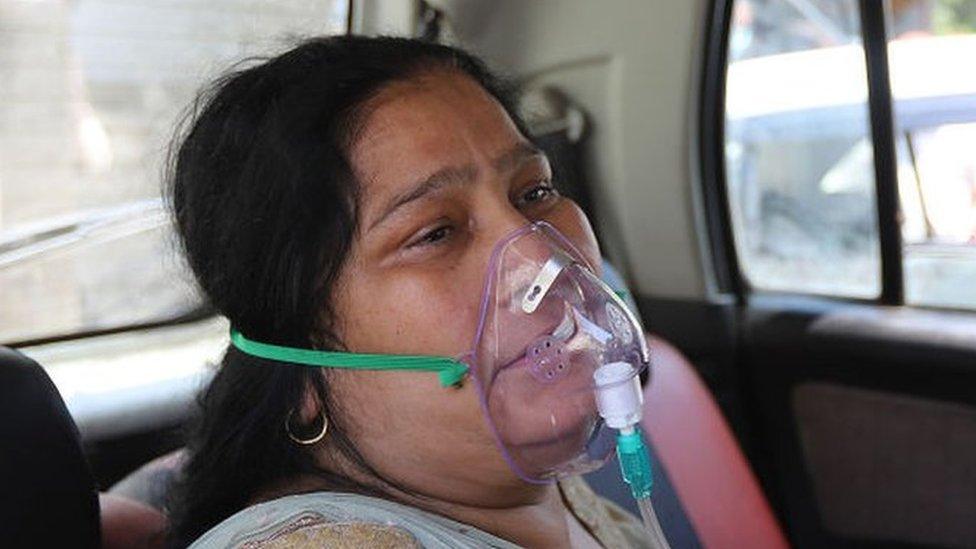India Covid: Hospitals overwhelmed as deaths pass 200,000
- Published
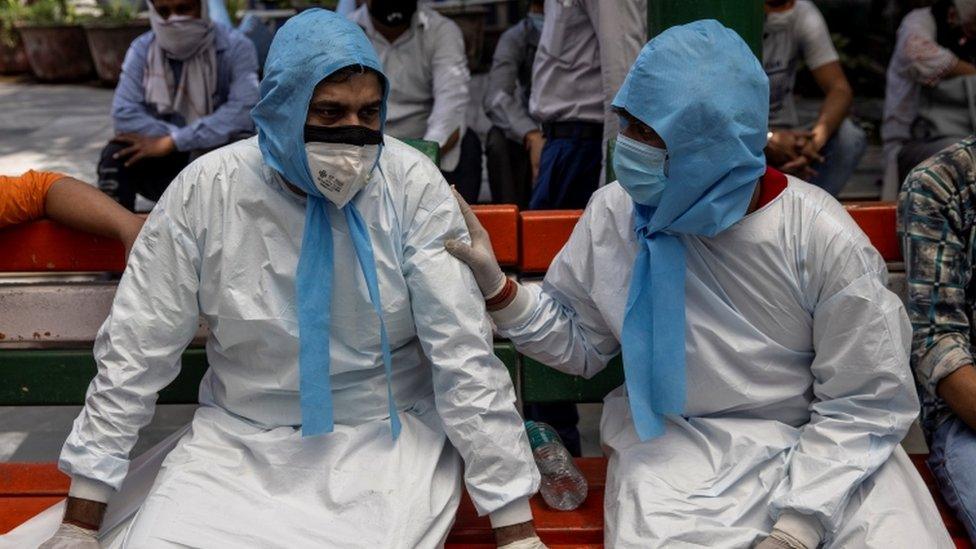
India has reached the devastating figure of 200,000 coronavirus deaths, with the pressure on many hospitals showing no sign of abating amid a surging second wave.
The real number of fatalities is thought to be far greater, with many not being officially recorded.
Oxygen supplies remain critically low across the country, with the black market the only option for some people.
Crematoriums are operating non-stop, with makeshift pyres in car parks.
There have been at least 300,000 new infections every day in the past week, with more than 360,000 new cases in the past 24 hours on Wednesday. Overall, more than 17.9 million cases have been registered.
What are other countries doing to help?
Foreign aid has started to arrive from the UK and Singapore. Russia, New Zealand and France have pledged to send emergency medical equipment, and even regional rivals Pakistan and China have put aside their differences and promised to help.
On Thursday, the US said it would start delivering supplies, external worth more than $100m, in addition to individual US states and private companies also readying oxygen, equipment, and supplies for Indian hospital.
However, experts say the aid will only have a limited effect in a nation that has a population of 1.3 billion.
A government website where Indians can register for a vaccination programme crashed soon after it launched on Wednesday, as tens of thousands of people tried to access it.
And in the state of Assam, a 6.4 magnitude earthquake damaged hospitals which were already under intense strain. People ran from their homes and other buildings in panic.
How bad is the situation in India?
The numbers we are seeing are staggeringly high - but the real number of fatalities are thought to be much higher.
Mortality data in India is poor and deaths at home often go unregistered, especially in rural areas. There are reports of journalists counting bodies at morgues themselves, to try to get a more accurate number.
In Uttar Pradesh, health officials said 68 people had died on one day earlier this month across the state. But a Hindi newspaper pointed out that officials also said there were 98 Covid funerals in the capital, Lucknow, alone.
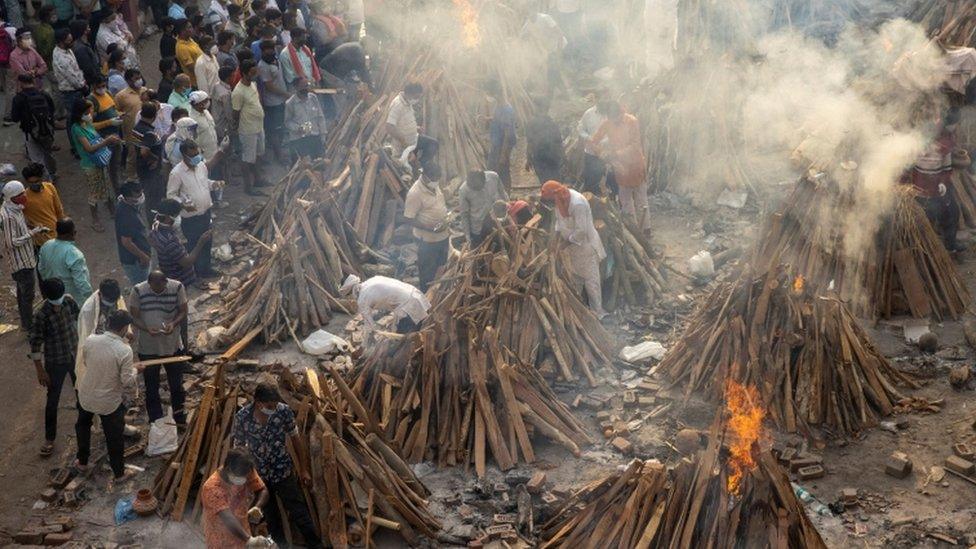
Crematoriums are working throughout the night and using empty spaces like parks and carparks to build makeshift funeral pyres
Crematoriums continue to work throughout the night to keep up with the number of bodies arriving, and many families are facing long waits before their loved ones can receive funeral rites. Some say they were asked to help speed up the process by piling the wood themselves.
In the southern city of Bengaluru, one doctor told the BBC people were panicking. It is one of the worst-hit cities in India, with some estimates saying there are about 300 active Covid cases per square kilometre.
"We were not prepared for this second surge," the consultant said.
"For the first surge it was well organised. This time there are more cases, it was more sudden, and the situation was not prepared for."
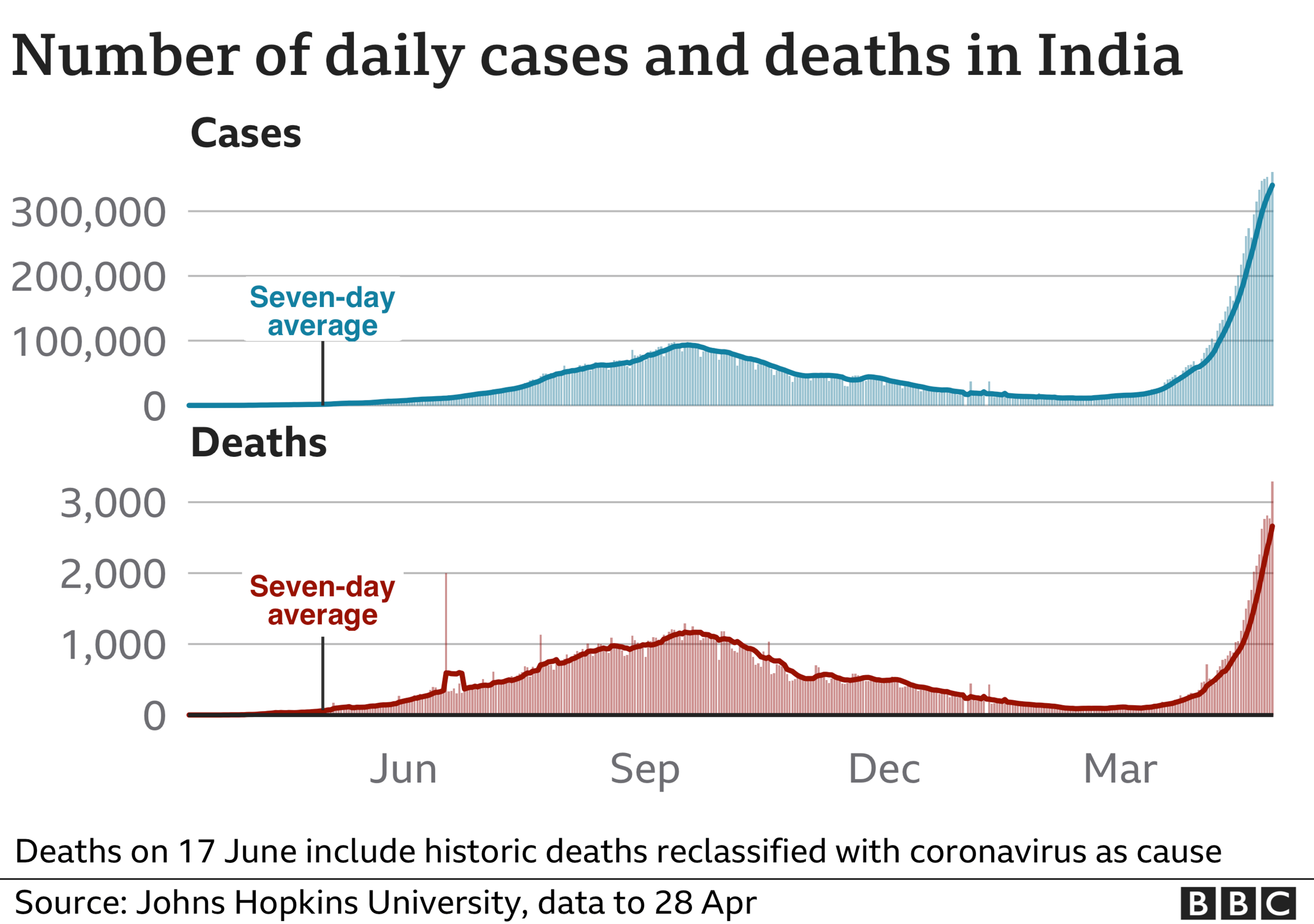

The World Health Organization (WHO) reported in its weekly epidemiological update, external that there were nearly 5.7 million new cases reported globally last week - and India accounts for 38% of them.
It also said that the B.1.617 variant of the virus detected in India has a higher growth rate than other variants in the country, suggesting increased transmissibility.
Are people getting vaccinated?
India is carrying out the world's biggest vaccination drive, but less than 10% of the population has so far received an initial jab and there are concerns about meeting demand.
The US is helping India with the raw materials it needs for vaccine production, after India's biggest vaccine maker, the Serum Institute of India, complained of shortages of specialised imports from the US.
Meanwhile, the first batch of the Russian vaccine, Sputnik V, is set to arrive in India on 1 May, The New Indian Express reports, external. It has not yet been revealed how many doses will be delivered.
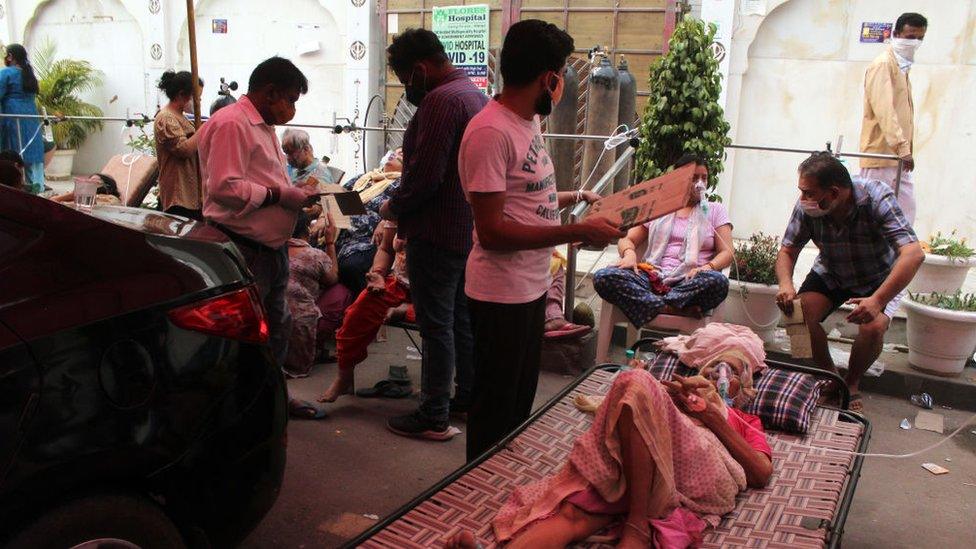
With most hospitals at capacity, many people are seeking help elsewhere, including this woman outside a Sikh temple in Ghaziabad
What is the government doing?
India is heading towards state elections, and there is increasing anger towards both state authorities and the central government for the handling of the pandemic.
Prime Minister Narendra Modi has been accused of ignoring scientific warnings to participate in election rallies and allowing a massive Hindu festival to go ahead in northern India.
Dr Navjot Dahiya, the vice-president of the Indian Medical Association, called Mr Modi a "super spreader", external who had "tossed all Covid norms in the air".
The prime minister said he had held three meetings on Tuesday to discuss ways to increase oxygen capacities and medical infrastructure, including the use of trains and military aircraft to speed up transport of oxygen supplies.
The BBC's Yogita Limaye says many people are asking why the military and disaster response teams have not been put on a war footing to build field hospitals.
"There is a sense of abandonment in the country, of people being left to fend for themselves," our correspondent reports.
State and union territory governments, from Delhi to Karnataka, have been criticised for allowing Covid protocols to lapse and failing to prepare for what epidemiologists say was an inevitable surge in infections.
"I lost my unborn child and wife on the same day" - two stories from India's Covid crisis
Related topics
- Published28 April 2021
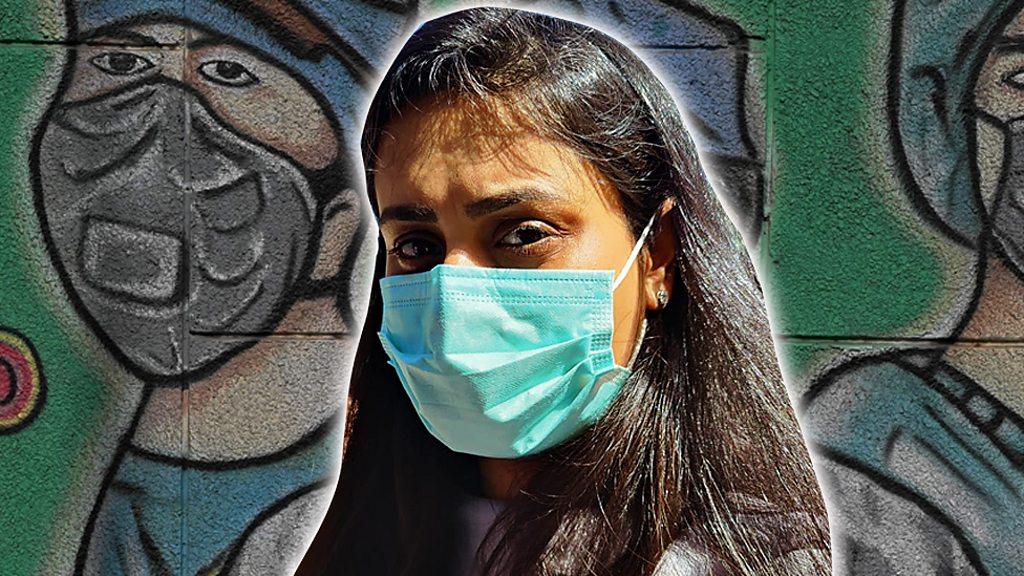
- Published26 April 2021
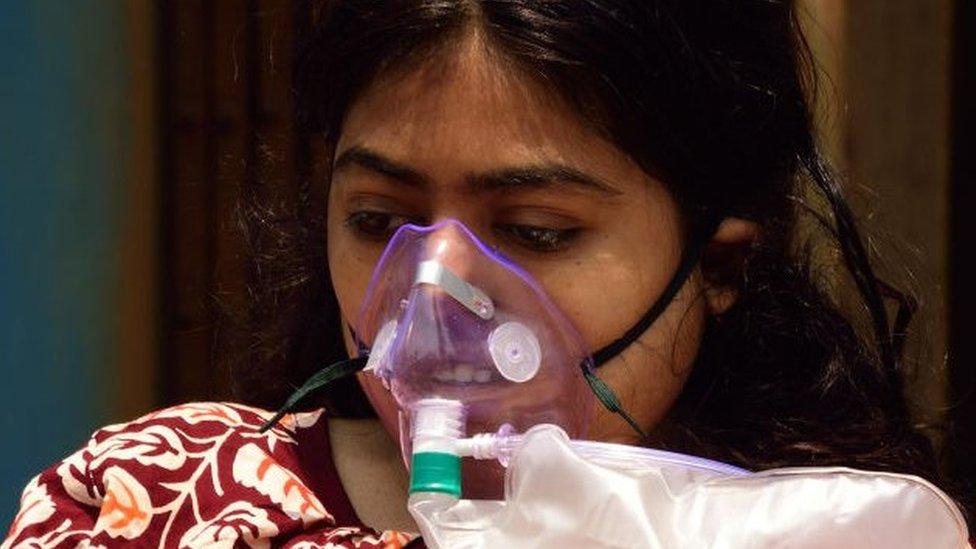
- Published28 April 2021
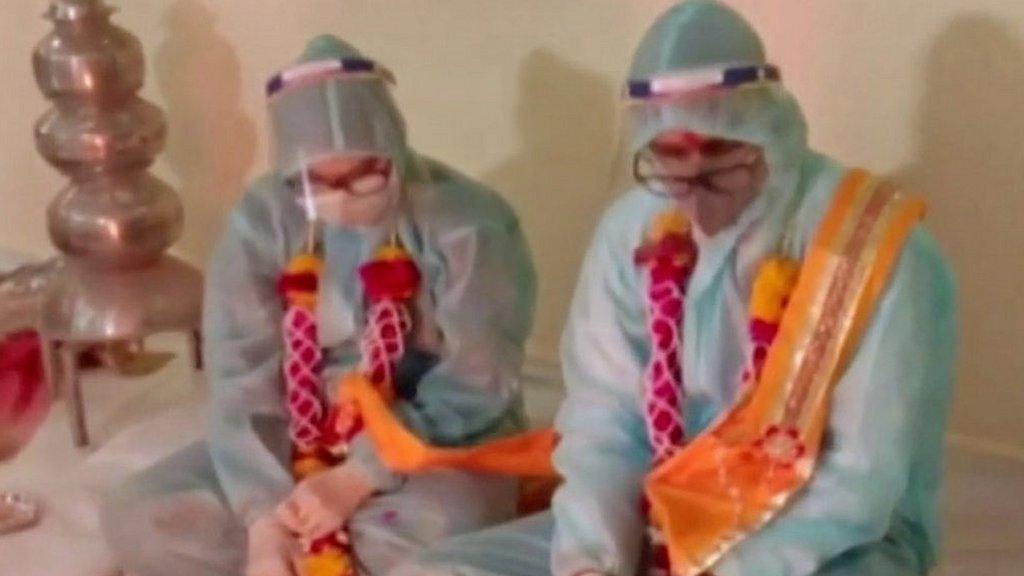
- Published25 April 2021
